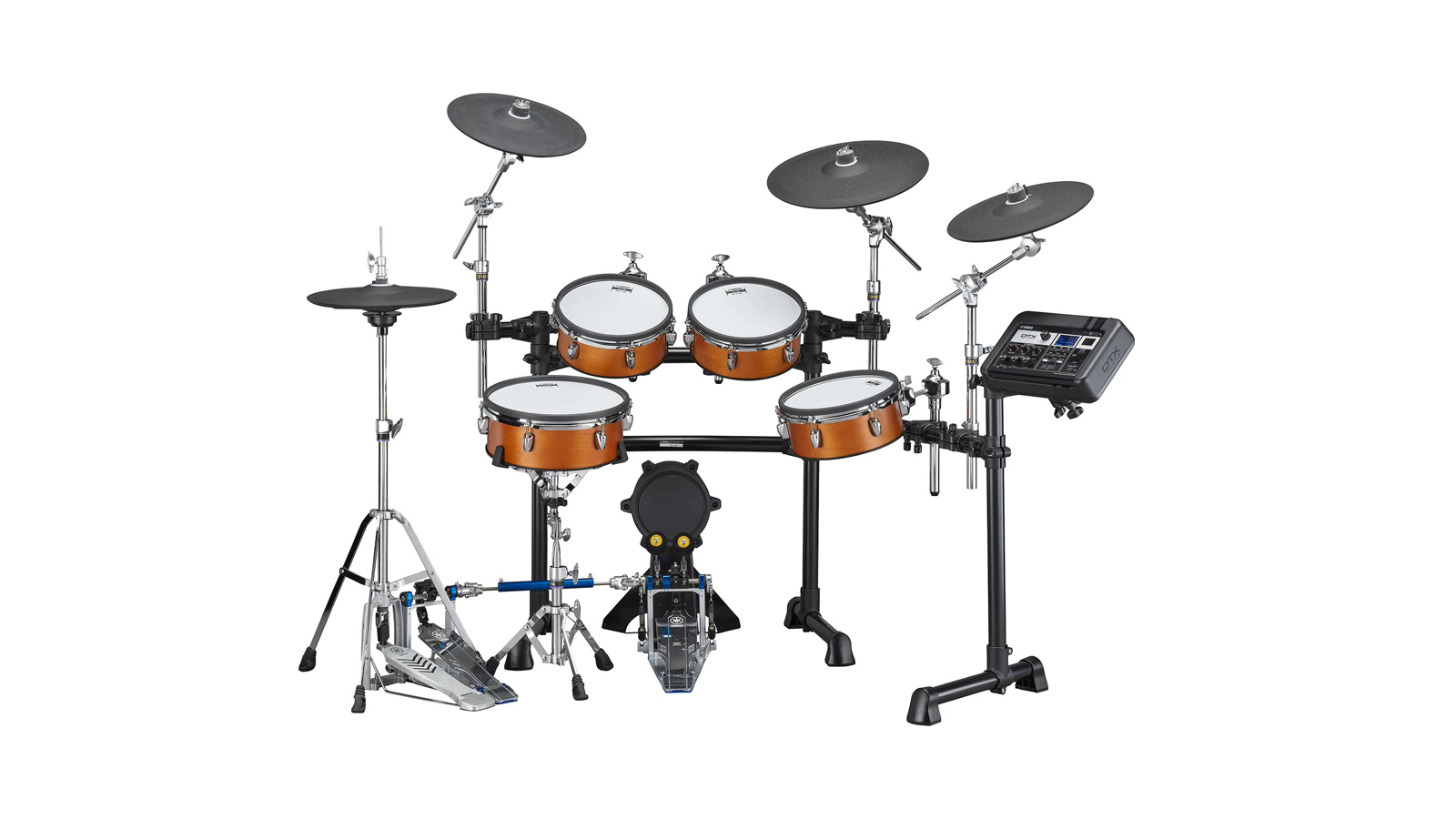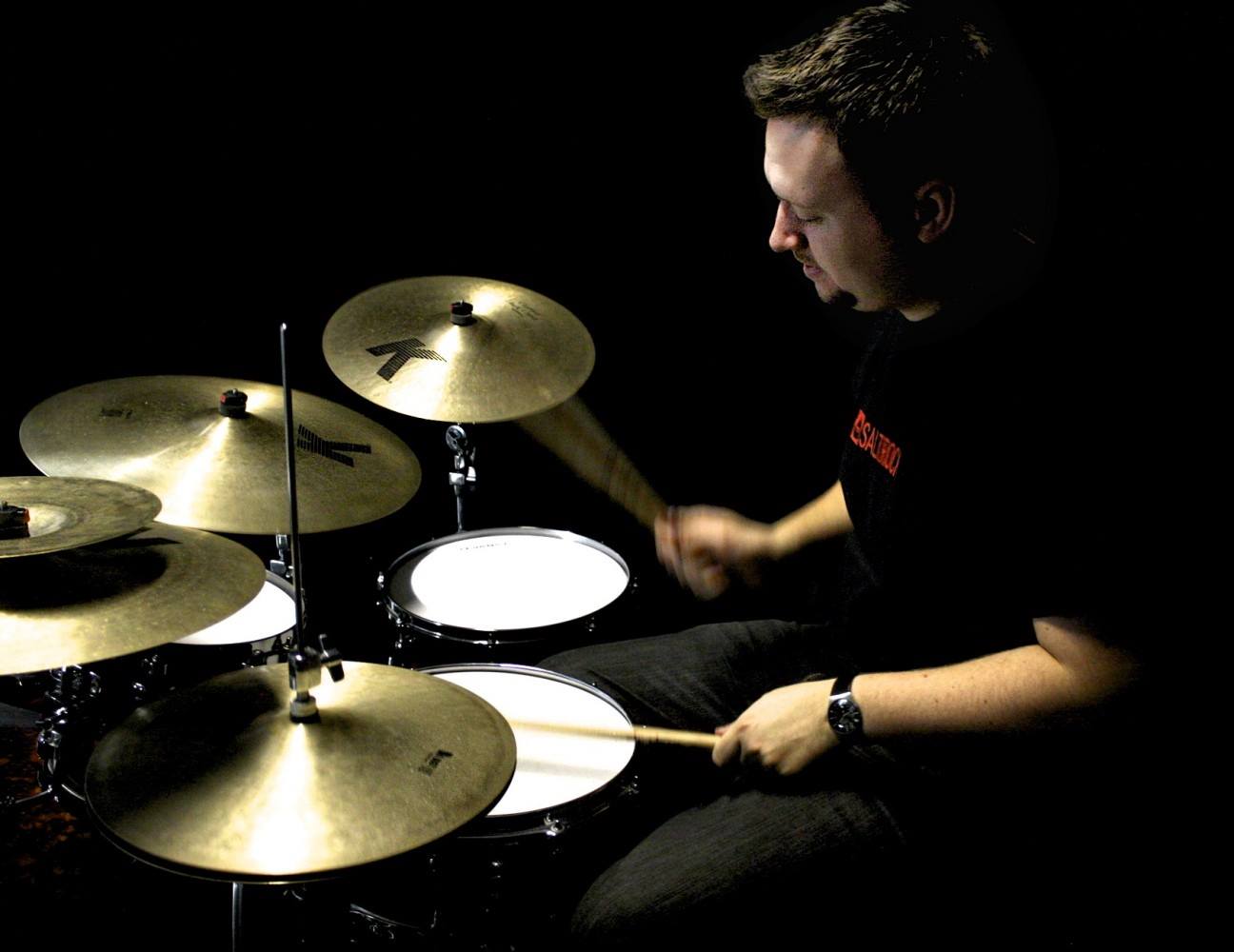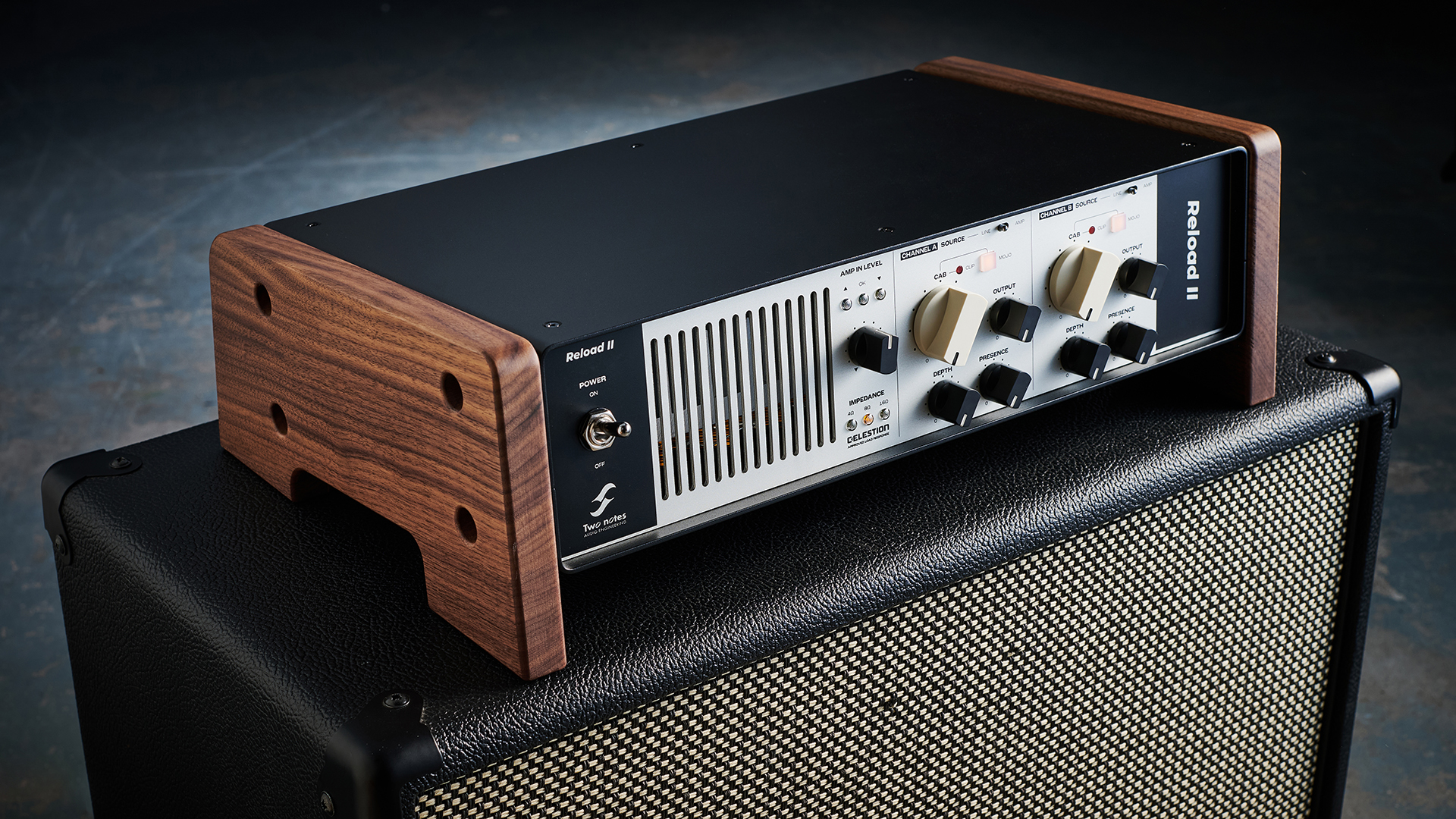MusicRadar Verdict
The DTX8 pushes close to its flagship big brother the DTX10 in terms of features for around half the price. Fantastic samples, deep editing capabilities, birch shells and mesh heads make for a seriously good looking package.
Pros
- +
Many shared features with Yamaha’s flagship DTX10
- +
Mesh heads
- +
Kit Modifiers enable speedy changes to the sound
Cons
- -
No direct outputs
- -
No Bluetooth capability
MusicRadar's got your back
Yamaha DTX8K-M review: What is it?
Following the release of the DTX6 kit series in 2020 (read our Yamaha DTX6K3-X review), at the tail end of 2021 Yamaha unveiled the new DTX8 range which promised to not only deliver amazing sounds but also the looks to back them up with the use of real wooden drum shells.
In terms of Yamaha’s electronic drum set lineup, the DTX8 is second only to the new flagship DTX10, which boast the more capable DTX-PROX module, larger trigger pad dimensions and a heavy-duty metal Hex Rack. The DTX8 kits come complete with the DTXPRO module (also part of the DTX6 kit range), but there are plenty of shared features between the PRO and PROX modules. These include Kit Modifier knobs which enable quick editing of ambience, compression and effects, recording directly to USB memory for up to 90 minutes in a single audio file, user sample import of up to 1000 files and a powerful multi-FX engine. Other standout features of the module include over 700 individual samples, 40 preset kits with room for 200 user creations, 10 training functions including 37 play-along tracks, audio and MIDI via USB plus a professional grade headphone amp.
Like the DTX10, the DTX8 setup is available in two finish options - Real Wood and Black Forest - with a choice of two playing surfaces; Mesh or Yamaha’s TCS (Textured Cellular Silicone) heads. Yes you read that correctly, Yamaha is now offering 2-ply mesh heads as an option on its e-kits, which is news that will be welcomed by many.
Yamaha DTX8K-M review: Performance & verdict
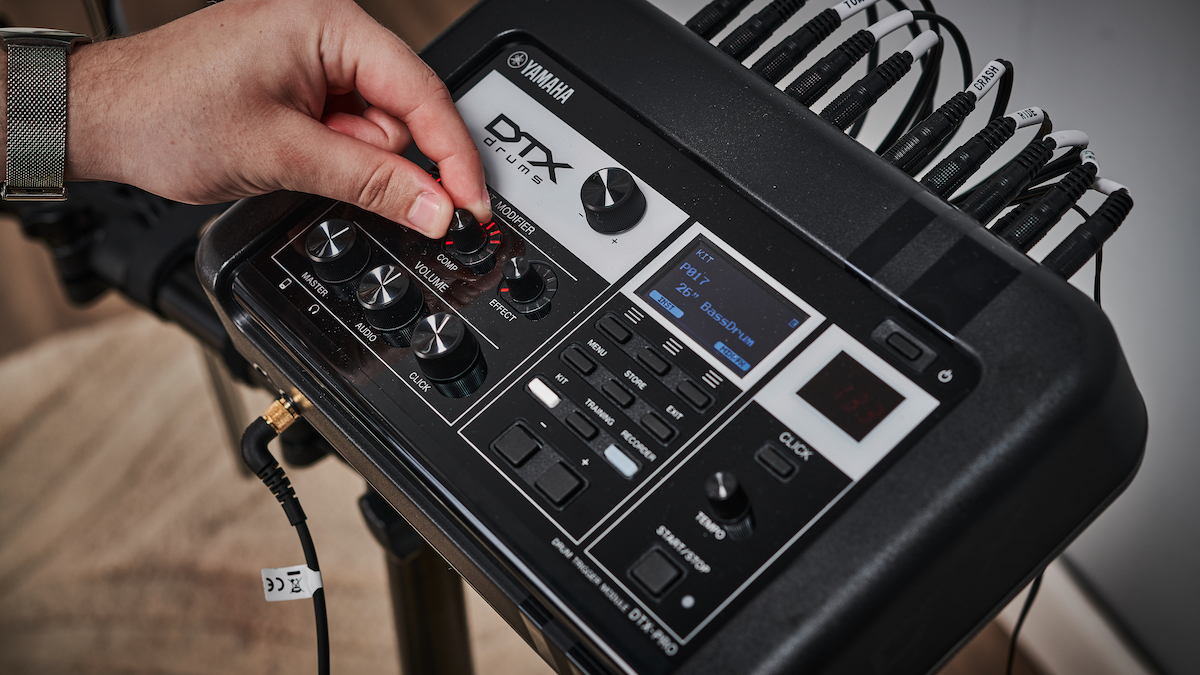
The DTX8K-M kit we have been sent for review is comprised of three 10” toms, a 12” snare pad, a new 7.5” KP90 bass drum pad, two 13” crashes, 15” ride and 13” hi-hats. The toms are dual-zone with the rim triggers programmed for the most part with actual rimshot sounds (rather than the metallic rim clicks found on other modules) which goes a long way to enhancing the versatility of sound and therefore overall playability.
The snare has three zones with the rim being split into sections, enabling rimshot and cross-stick sounds depending on where the outer rim is struck. Positional sensing also offers more nuance toward the outer edges of the main playing surface. The cymbals are all three zone (except the hi-hats which are two) meaning they are capable of separate bell, bow and edge triggering - we found this particularly impressive considering that only one cable is required for each pad.
We found the 13” crash pads to be slightly on the small side but they do feel in proportion with the compact nature of the whole kit. The 15” ride is large enough to have some sway and, like the snare, also features positional sensing. The setup is completed by a sturdy plastic rack, metal tom and cymbal arms, and comes supplied with separate snare and hi-hat stands.
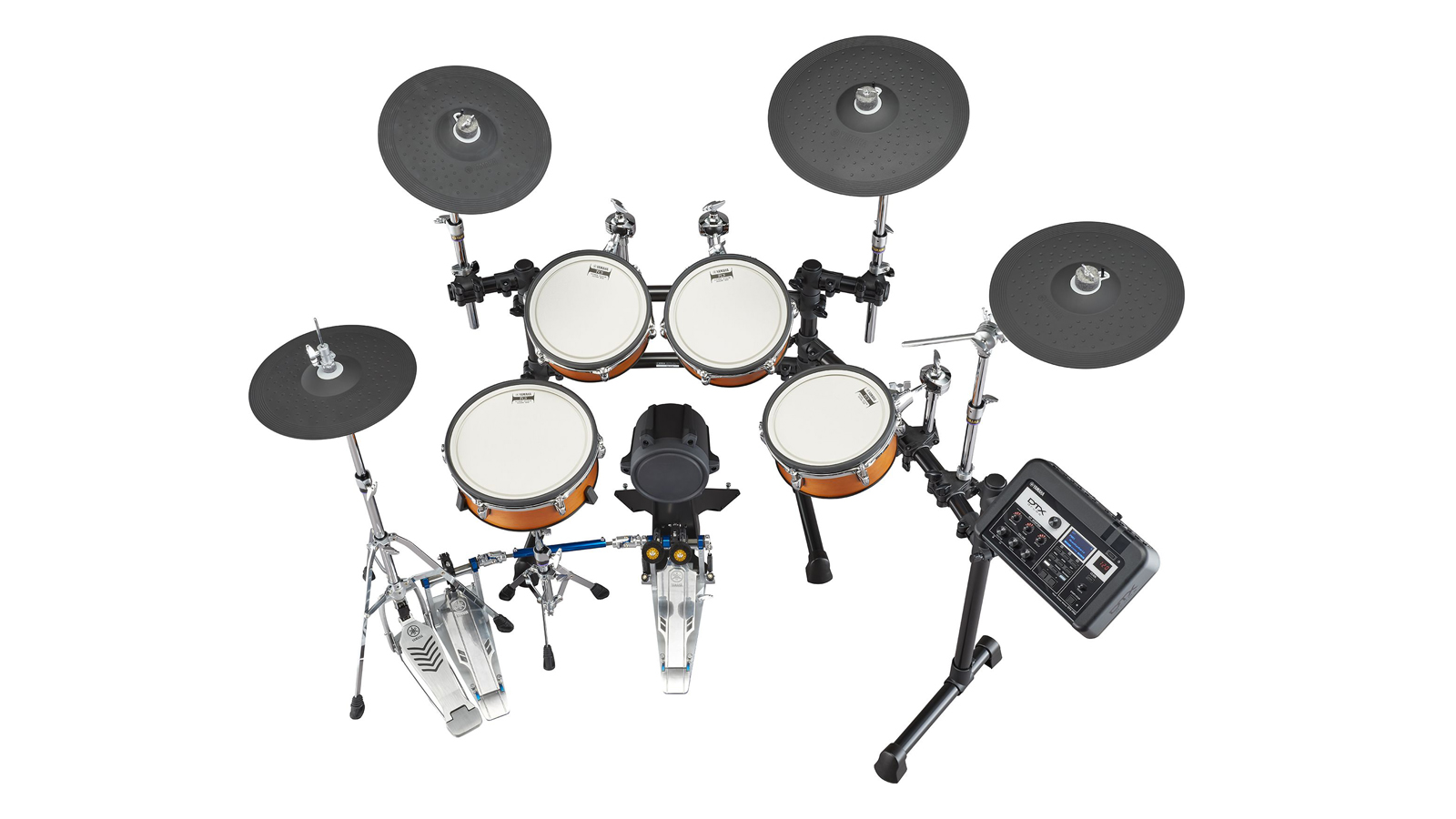
The birch ply shells are unsurprisingly of a high-quality considering Yamaha’s pedigree in acoustic drum shell making. Despite, of course, having no impact on the sound, the shells are a welcome addition and, alongside the separate hi-hat and snare stands, help the setup feel much closer to that of a ‘real’ kit. It’s a shame they’re not a bit deeper, but looking at current market trends we’d wager that might be coming further down the line.
The module houses 40 kit presets but leaves room for a whopping 200 user creations (just make sure you save any changes made before advancing to the next kit). The 40 presets include a mixture of fantastic acoustic samples alongside some more electronic orientated kits. Many of the samples are shared with Yamaha’s higher-end DTX-PROX module and both in fact use the same audio engine.
As excellent as the factory presets are, there is ample opportunity for exploration through the menus, switching or layering sounds, adding custom samples, applying effects, tweaking the mix and much more. We had some trouble finding certain parameters at first but soon got into the swing of the DTXPRO setup.
We found the Kit Modifier controls to be a stroke of genius and gave us a huge amount of control at the touch of a button (or turn of a knob). The ability to dial in the actual ambience taken from the recording studios in which the samples were created is a real treat. This makes for a more natural drum sound and is a process that’s been setting software-based VST instruments apart for years.
Yamaha DTX8K-M review: Hands-on demos
Yamaha_Global
Drumtec TV
Yamaha Drums (official)
Yamaha DTX8K-M review: Specifications
- Acoustic shells: Three 10” dual-zone toms, 12” tri-zone snare (with positional sensing) and 7.5” KP90 bass drum pad
- Anti-swivel cymbals: Two 13” tri-zone crashes, 15” tri-zone ride (with positional sensing) and 13” dual-zone hats
- Head type: Mesh
- Kits: 40 kit presets and room for 200 user kits
- Sounds: 712 individual samples, up to 1000 user samples
- Other features: USB audio, record to USB memory (max 90 mins), powerful Multi FX and ambience settings, professional grade headphone amp, built-in training functions, full dot LCD
- Software: Supplied with Cubase AI
- Contact: Yamaha
Tom is a professional drummer with a long history of performing live anywhere from local venues to 200,000 capacity festivals. Tom is a private drum tutor, in addition to teaching at the BIMM Institute in Birmingham. He is also a regular feature writer and reviewer for MusicRadar, with a particular passion for all things electronic and hybrid drumming.
“This update reflects everything we believe modern gear should be”: Neural DSP gives the Nano Cortex an almighty power-up with free NanOS 2.0.0 system update
“It’s honestly got me thinking hard about adding one to my own studio set up”: Two Notes Reload II review
“Gloriously adorned with a gold edge burst finish over a gold paisley and sparkle top”: Gretsch unveils the Paisley Penguin – a rare bird that growls – and the Honey Dipper Special, a resonator for all your roots rock manoeuvres
